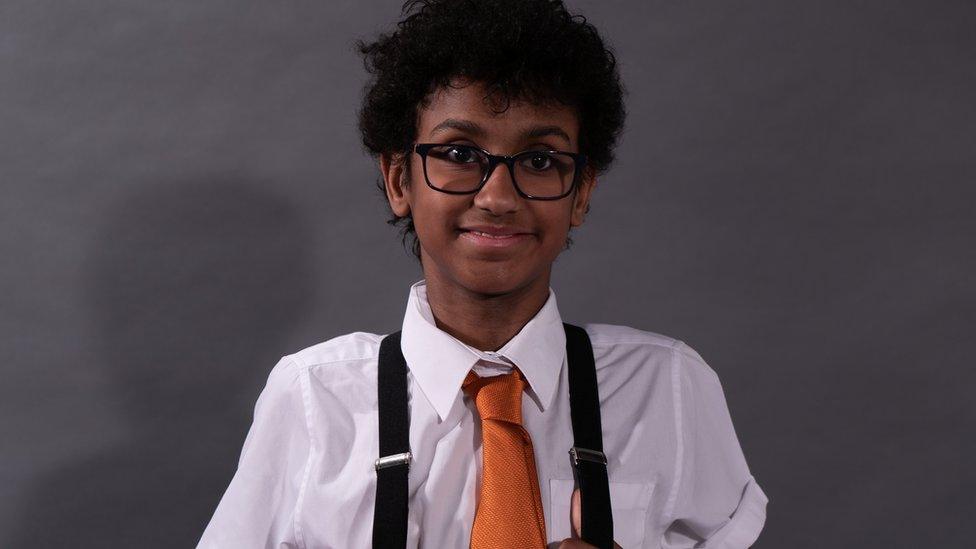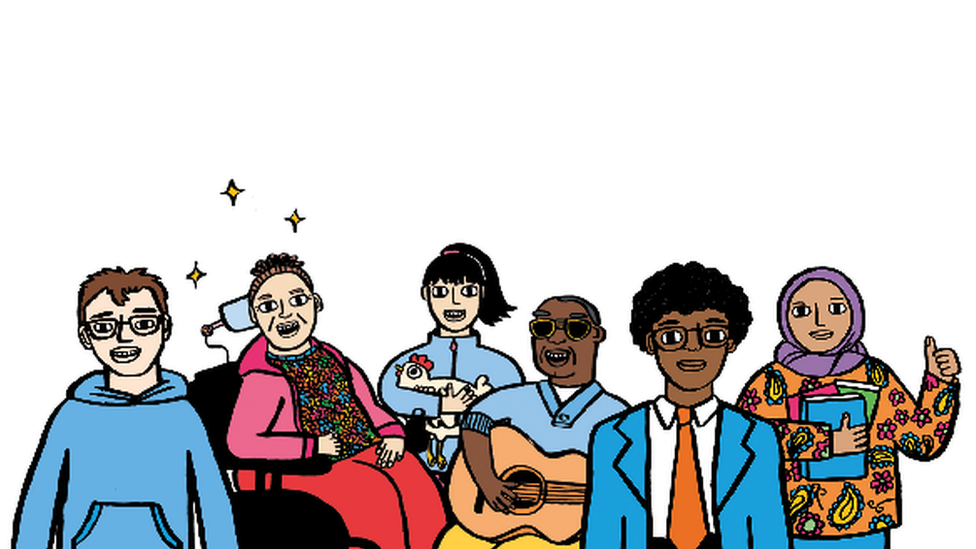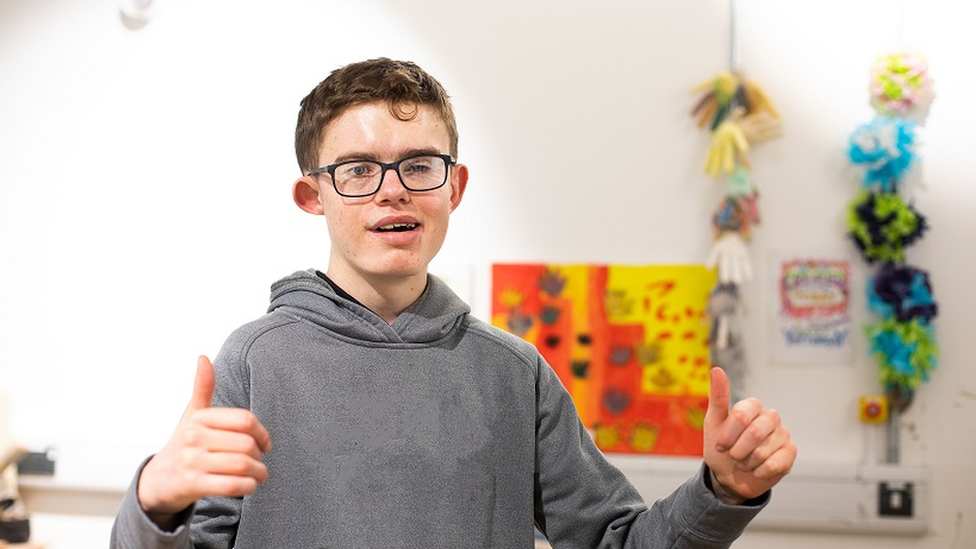Birmingham teen sign language teacher stars in animated class
- Published

Tyrese Dibba said he wanted to continue his work teaching sign language
A teenager who helped thousands of people learn British Sign Language (BSL) during the first Covid-19 lockdown is being turned into an animated character in new lessons.
Tyrese Dibba, who has Charge Syndrome, created a series of BSL videos which were watched by more than 80,000 people.
His character will be the head teacher of charity Sense's Sign School.
Tyrese said he loved to be able to continue his work.
For his work during the pandemic, Tyrese received a Points of Light award from the prime minister and the Stephen Sutton Inspiration Award at the Pride of Birmingham Awards 2021.
"Deaf people shouldn't be excluded," he said.
"You should be able to chat to everyone, regardless of disability."

George Cook, left, and Tyrese Dibba, second from right, are among the animated Sense Sign School teachers
People who subscribe to the Sense Sign School will receive a monthly lesson pack in the post, which includes illustrated flash cards, a conversation guide leaflet as well as access to digital lesson pages and sign animations to aid learning.
Among the new teachers joining Tyrese as part of the project is an animated version of 18-year-old George Cook, from Birmingham, who has Charge Syndrome and is autistic.
He said: "More people using BSL gives me more independence, because the more people who can help me, the better."

George Cook said more people knowing BSL would help him gain greater independence
His mother, Emma, added: "I'm very proud that George is involved in this, as the more people who can sign the better."
Sense chief executive Richard Kramer said: "We're thrilled to have Tyrese and George - and other friends of Sense - support us on this exciting venture which will get more people using BSL, and help raise money for our work supporting people living with complex disabilities."

Follow BBC West Midlands on Facebook, external, Twitter, external and Instagram, external. Send your story ideas to: newsonline.westmidlands@bbc.co.uk , external
- Published13 October 2021

- Published6 May 2020
